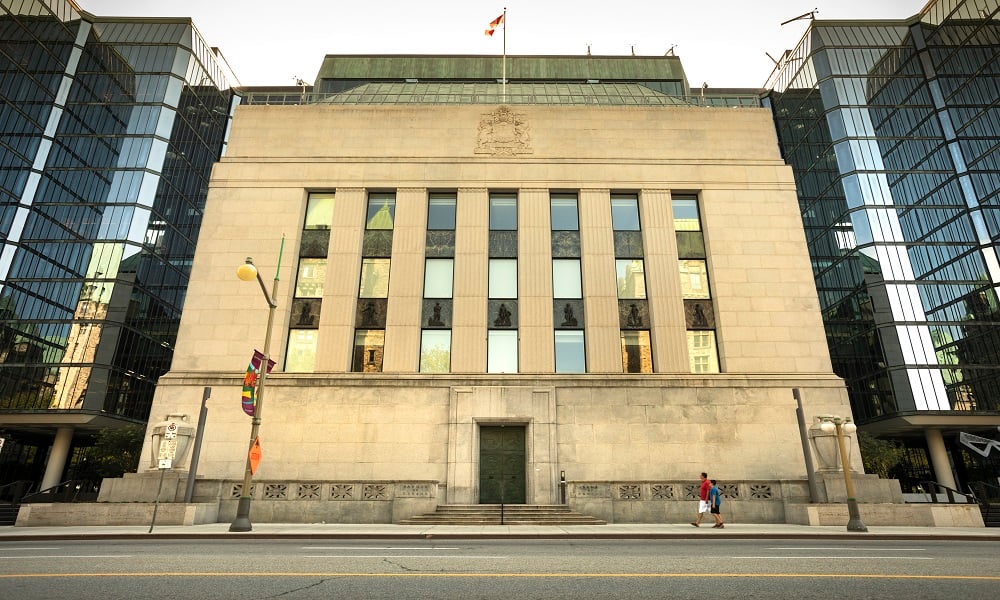Leading analyst and advisor agree that a cut is coming but think different metrics will drive that decision

The language surrounding the Bank of Canada’s (BOC) decision to hold its key interest rate steady at 1.75 per cent may very well mean that they’re preparing for a cut later this year.
Governor Steven Poloz revised growth estimates of both Q4 2019 and Q1 2020 down. Though he remains concerned about household debt and housing “froth”’ yesterday’s announcement was more couched in concerns about Canada’s economic prospects driven by weaker-than-expected consumer spending and business investment. One leading analyst thinks the decision to hold reflected the conflicting pressures Poloz currently faces.
“I think there's a confluence of factors that don't paint a very clear picture for the Bank of Canada in one direction or another,” Craig Fehr, investment strategies principal at Edward Jones, told WP. “I think the [decision to] hold rates steady was probably a reflection of the fact that they're going to wait to see where some of these trends shape up in 2020 before they make a decision.”
Fehr laid out three forces at play for the bank. He thinks high levels of consumer debt and its connection to the housing market make a case for a rate hike. Tighter monetary policy, he explained, could alleviate some potential problems down the road. Conversely, he thinks weaker-than-expected economic performance makes an argument for a rate cut to serve as economic stimulus. In between those two forces sits inflation, the Bank’s core management mandate, which is currently resting right around the 2 per cent rate the BOC has targeted. He thinks that later this year, though, a cut from the Bank is more likely than a hike.
Ben Jang agrees, the Vancouver-based portfolio manager with Nicola Wealth thinks that Poloz has already lessened his previously “hawkish” stance since the last decision to hold.
“I do think it's a real possibility for a cut before [Poloz] leaves,” Jang said. “They dropped language about the current rate being appropriate, which is I think key in the statement. The bar is relatively high in terms of the data needing to kind of force them to cut.”
Jang and Fehr both agree that the strength of the loonie will be a major factor in an eventual decision to cut rates.
Jang also believes that consumer spending, the housing market, and business investment rates will drive a later decision to cut. He thinks that as much as Poloz fears “froth” in the housing market driving a bubble, the governor is more likely to cut rates to avoid a potentially calamitous collapse in real estate value.
Outside of inflation, Craig Fehr is looking at employment.
“We saw incredibly robust job growth last year,” Fehr said. “I don't think that'll be sustained this year. If we see a retrenchment in hiring trends and that comes along with retrenchment in wage growth, that will probably alleviate some of the upward pressure on inflation, which again, could create a little bit of cover for them to put in a cut if they if they so choose.”
Fehr is also keeping a close eye on exports, which he says have been “flagging”. Exports may be tied to a number of international factors but Canadian exporters would generally benefit from a weaker loonie.
Both Fehr and Jang think the consumer debt alarms are starting to ring a little softer. Jang cited the strong underwriting standards of Canadian lenders while Fehr noted that overall savings rates are increasing.
Overall, they agree that fundamentals will drive the course of the market. Fehr contends that looking at fundamentals, investors shouldn’t panic around the shocks that may be looming in the coming year.
“I think the takeaway here is growth is slowing,” Fehr said. “That shouldn't come as a surprise o anybody, but growth should continue to have a plus sign in front of it in the coming year. And that's good news for investors because slow growth is not recession
“I think, a year of sluggish, probably even maybe slightly disappointing, growth is probably ahead, but it is still going to be growth.”



